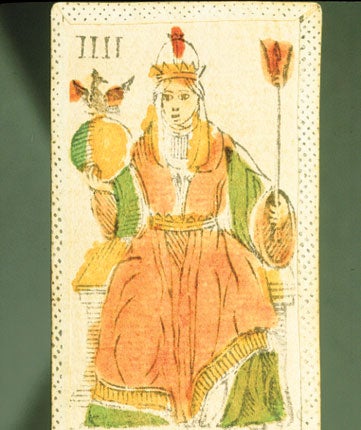The Week in Radio: Portrait of a pretend Pope that restores the faith

Your support helps us to tell the story
From reproductive rights to climate change to Big Tech, The Independent is on the ground when the story is developing. Whether it's investigating the financials of Elon Musk's pro-Trump PAC or producing our latest documentary, 'The A Word', which shines a light on the American women fighting for reproductive rights, we know how important it is to parse out the facts from the messaging.
At such a critical moment in US history, we need reporters on the ground. Your donation allows us to keep sending journalists to speak to both sides of the story.
The Independent is trusted by Americans across the entire political spectrum. And unlike many other quality news outlets, we choose not to lock Americans out of our reporting and analysis with paywalls. We believe quality journalism should be available to everyone, paid for by those who can afford it.
Your support makes all the difference.Who will be the first female Pope? Before you start saying "Ann Widdecombe" or talking about the doctrine of the all-male priesthood let me stop you. Because we may have already had a female Pope, and what's more she was English! This un-looked for boost to our international reputation came in John Julius Norwich's diverting Book of the Week: The Popes, which kicked off with Joan (or John as she called herself) who was elected in the mid ninth century after Leo IV. Carelessly, Joan got pregnant and gave birth on procession in a narrow lane near St Peter's, leading to horrible clerical reprisals. Yet was she for real? Sadly, Norwich thinks not, though there are plenty of documentary accounts of how she was dragged through the street and Martin Luther says he saw a statue of Joan, which was thrown into the Tiber by Sixtus IV. But coins from the period seem to prove otherwise, so perhaps the female Pope was only the result of wishful thinking by historians trying to spice up the institution of the papacy, though judging by the rest of this series, it needs little spicing. Wonderfully, however, Joan's legacy was said to live on in the form of the Porphyry Chair, a throne with a reclining back and a huge keyhole in the seat. Before the Pope's enthronement, "his testicles are felt by a junior cleric present as proof of his male sex, and the cleric shouts out 'here hangs testicles!'" If undignified clerical groping was the fate of every Pope for centuries then you might say that Joan had the last laugh.
Norwich is a bit of an institution himself, dropping phrases like "when my father was ambassador" and "when I was dogsbody to the Duke of Norfolk" into his narrative without turning a hair. But to keep such a light touch, without sacrificing academic seriousness, is a distinct achievement.
Another man with a talent to amuse was Bob Newhart, who went from unknown accountant to superstar in six months with a routine of one-sided telephone conversations. When The Button-Down Mind of Bob Newhart appeared in 1960 it became the first comedy album ever to top the charts. In the era of Mad Men, Newhart made several routines about the world of advertising, including the famous sketch "Abe Lincoln vs Madison Avenue" in which the American president is telephoned by his press adviser. "How's Gettysburg? Sort of a drag, eh?" Interviewed by Paul Gambaccini in For One Night Only, the 81-year-old comedian turned out to be both sharp and modest, the only frustration being that the snippets of his sketches used were so minuscule, that many listeners, including me, must have been longing for more.
If you still need cheering up, then I have just two words for you: Barry Manilow. I'm not joking. Manilow, who has been persuaded to present Radio 2's They Write the Songs, turns out to be a supreme radio presenter. His voice is liquid gold. His manner is both self-deprecating and authoritative.
This week, Irving Berlin was his focus. "I bet some of you young people have never heard of Irving Berlin, I'm such an old fart," chortled Barry. Berlin arrived in New York at five, unable to speak a word of English or read music, yet went on to become one of the greatest popular composers. Along with the sizeable song medleys and professional analysis, it is Manilow's enthusiasm that makes this series irresistible. "Amazing. A-mazing," he croons, as with technical precision he dissects a track to illustrate the workings of a "double song" or demonstrates how Berlin employed syncopation in songs like "Puttin' on the Ritz". Who cares that Australian police now blast Manilow's music to deter teenage gangs? He has a new calling, and it's one he performs like a star.
Join our commenting forum
Join thought-provoking conversations, follow other Independent readers and see their replies
Comments